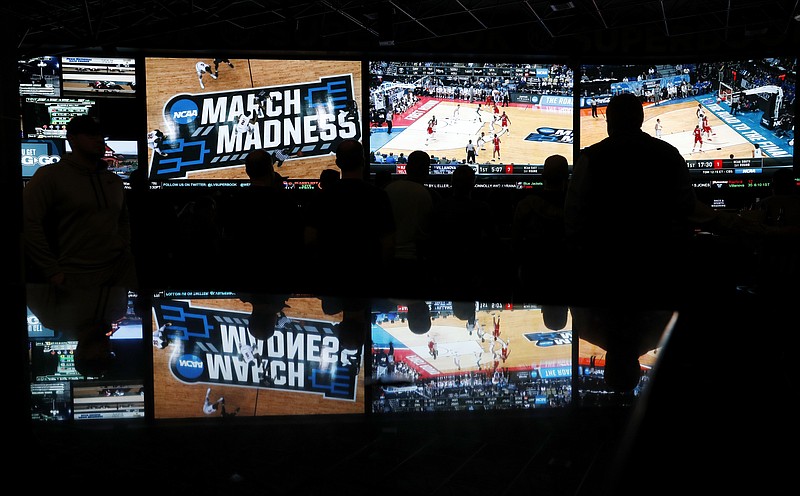The Atlanta Braves were a 1.5-run favorite to win Tuesday night's baseball game with the Chicago Cubs.
If you're a Braves fan, given their record of the last few years, you're just amazed they were favored to win over any team this far into the season.
If you're into placing bets, this is crucial information, as well as the other matchup details found on one particular online sports betting site such as how they've done against the over/under, their team rankings, their injury reports and their betting trends.
With Monday's United States Supreme Court ruling allowing states to legalize betting on sports, sites offering information like the one we visited will become prolific to give the bettor all the latest pertinent information.
The ruling is what many states and individuals, and - though they won't say it - sports franchises have been wishing for. But you should be careful what you wish for.
Though we believe the ruling is correct in allowing the states to decide whether they want to offer legalized gambling - rather than a 1992 federal law that limited it mainly to Nevada - we see a complicated and potential messy future between gambling and college and pro sports.
An October 2017 estimate by Ellers & Krejcik Gaming said that if all 50 states legalized sports betting, the industry could be worth from $7 billion to $16 billion by 2023.
Americans already annually wager some $150 illegally through off-shore and black-market bookies, according to Jason Robins, chief executive officer of DraftKings, a daily fantasy sports contest provider.
With Monday's ruling, much of that money could now be bet legally.
Further, individual states will have an additional revenue stream, sports books will create competition, and jobs within the industry will be created.
Professional football, baseball, basketball and hockey had urged the court to uphold the 1992 law - the Professional and Amateur Sports Protection Act - and vowed after the ruling to protect the "integrity" of their games. But each of the leagues stands to profit by it, the thought being that down the way some small percentage - 1 to 1 1/2 percent, perhaps - of each bet could go back to the teams that are bet on and the leagues. And, the thought goes, to bet on the team, the bettor has to be interested in the team, thus increasing various types of engagement with it.
That's all on the upside.
On the downside, we worry about gambling worming its way more tenaciously into actual games. Sports fans can look back over a century of professional sports and name the likes of the 1919 Chicago Black Sox scandal, a 1951 college basketball point-shaving scandal, a similar 1985 scandal involving Tulane University, and Pete Rose's 1989 banning from baseball for betting on the game, but the incidents, though serious, are few and far between.
With money potentially going to leagues and teams - though we're probably many months from such agreements being reached - the possibility of nefarious acts increases manyfold.
We also blanch at the amount of money that could be spent much more easily, and legally, by people who can barely afford to put food on the table for their family. We know that such spending already goes on both in sports gambling and in lottery sales (though lottery ticket sales also provide for attributes like scholarships for qualified high school seniors).
Indeed, according to the National Council on Problem Gambling, an estimated 2 million people meet accepted criteria for addictive or pathological gambling, 4 to 6 million are classified as problem gamblers and some 15 million more are thought to be at risk.
States, of course, have to pass laws to authorize such betting. But besides Nevada, Oregon, Montana and Delaware, which were grandfathered in by the now-nullified 1992 law, nearly 20 other states have had legislation introduced to legalize gambling.
And while for many of the states the issue won't come up again until their 2019 sessions, some states - like New Jersey - could have laws passed within a couple of weeks.
Today, we live in a country where the mores once known by, for example, middle-aged individuals in Tennessee, have drastically changed - Sunday retail shopping, liquor-by-the-drink sales, Sunday liquor sales and lottery ticket sales. If states are smart and prudent, they're careful to use caution and expertise when they enact such laws. We hope the Volunteer State will exercise such care when or if it considers legalized sports betting.
